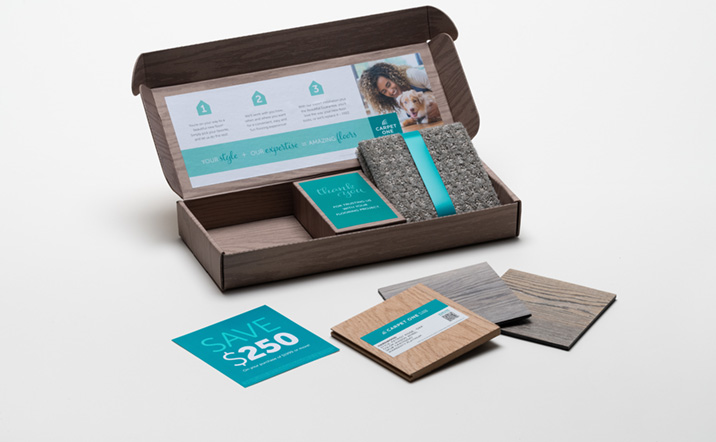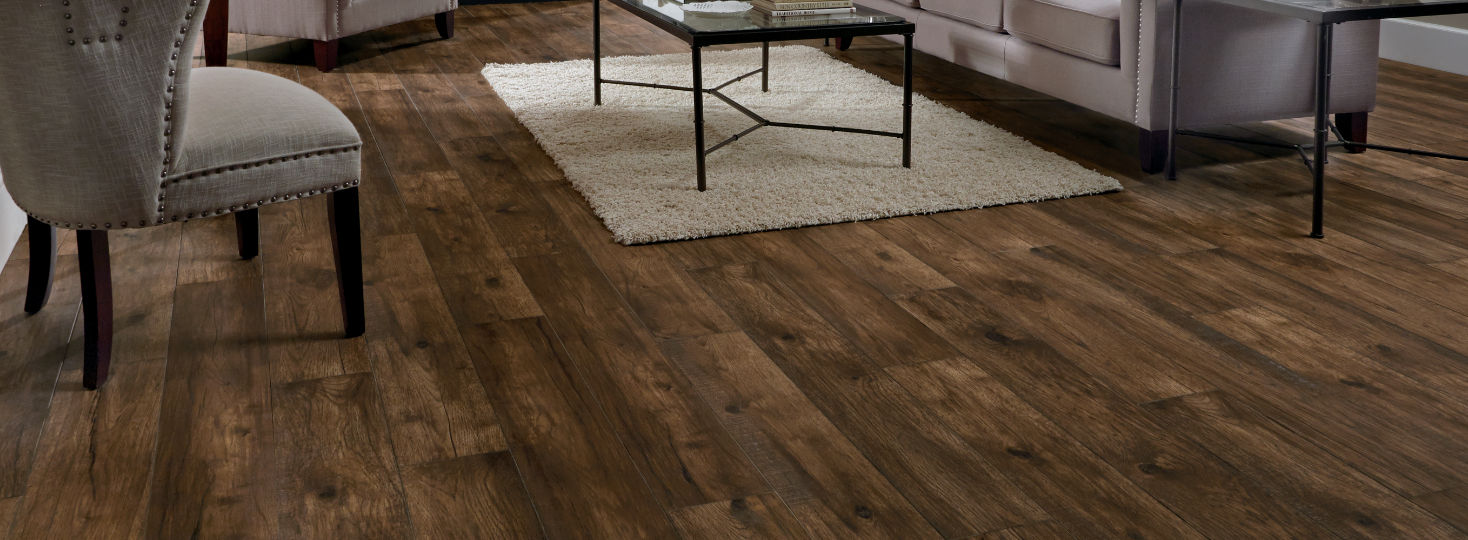
Solid Hardwood Flooring
Solid wood flooring fits all styles of decor while having durability, minimal maintenance, long life, and visual elegance.

Solid wood flooring fits all styles of decor while having durability, minimal maintenance, long life, and visual elegance.
No items could be found with the selected filters.
Please try your search again.

Our designers share tips and top trends for every season. Discover your next home project with the help of our blog.

Get up to six samples delivered to your door.

Solid wood flooring fits in with all styles of decor, whether you have a rustic country cabin, a sleek industrial loft, or an eclectic look all your own. Its durability, minimal maintenance, long life, and visual elegance make it a top flooring pick year after year.
Solid hardwood flooring consists of strips of hardwood, also known as planks, that are installed over a subfloor like concrete. Common species used in hardwood flooring include oak, birch, walnut, cherry, maple, and hickory, among others. Each wood type has its own coloration and grain pattern, as well as a degree of hardness, which influences its durability.
Similar to shopping for a new car, you have several factors to consider when deciding on the visual features of your new solid wood floors. What plank style best suits your space: standard width or wide plank? What shade, undertone, and grain pattern best compliment your design aesthetic? Do you want a stained or finished floor? Light, natural hues like ash wood flooring can add a modern touch to your open-concept home while rich, darker woods like an espresso-stained hard maple floor deliver drama to your Victorian restoration.
While any kind of hardwood has the potential to withstand average wear and tear for decades, the extent of hardwood’s durability varies by wood species. Hickory is the hardest and therefore most durable wood floor available, with white and red oak not far behind.
Maintaining the natural strength and beauty of your hardwood floors is as simple as sweeping or vacuuming regularly. This keeps them free of the everyday debris that gets tracked in by family and pets and can accidentally scratch your floors. Always check with the manufacturer for care instructions specific to your flooring choice.
Solid hardwood floors can easily last up to 100 years, which is one of the key reasons for their never-ending popularity. The longevity of your solid wood flooring will depend on a few aspects, including:
There are several installation methods available for solid hardwood flooring, and the best option for you depends on the type of subflooring in your home. Nail-down and staple-down installations fasten planks to the floor while the glue-down method adheres the flooring to the subfloor with a strong adhesive.
Although you may be interested in installing your own flooring, we recommend seeking the help of a professional flooring installer. An experienced installer will be able to catch potential installation issues that a DIYer may not. Identifying possible mishaps can ensure that your flooring is installed with the durability and lifespan that it's intended to have. Many professional installers also offer unbeatable installation warranties that will give you peace of mind.
Solid wood floors are popular and have high value for a number of reasons:
For all the pros that come with solid wood flooring, there are some downsides to consider:
There are fundamental differences between solid hardwood flooring and its near identical engineered hardwood counterpart.
There are several factors to consider when choosing between solid and engineered hardwood floors, including subfloor material and climate between these two options. Keep these questions in mind:
Expert Tip: Engineered wood can handle higher relative humidity and in places solid hardwood can't, like kitchens, below-grade basements, and over radiant heating systems or concrete slabs.
Yes! Solid wood flooring is a smart choice for many homes, especially if you’re looking for long-lasting durability in areas that don't see a lot of moisture, like your living room or bedroom.
This really depends on what matters most to you. Among the most popular are red oak and white oak floors, chosen for their durability and simple, elegant wood grain. Hickory hardwood is the densest hardwood used in solid flooring, effortlessly resisting scratches and dings.
It depends on your needs. Solid hardwood flooring lasts for several decades, wears well, and can be sanded and refinished as needed. But it doesn't work well in high moisture areas, which is where engineered hardwood shines. Engineered wood is perfect for all rooms, including bathrooms and below-grade locations like basements.
Solid hardwood floors can last 100 years or more if you follow your product warranty guidelines to clean them regularly and quickly tend to spills.
The standard thickness for solid hardwood floors is 3/4 inches, though modern wide planks in 5/16-inch and 1/2-inch are also available.
Schedule your no-obligation, free, in-home estimate for quality, name-brand carpet or flooring by giving us a call or filling out the form below. Call Now: Thank you for contacting Carpet One Floor & Home. Your local flooring expert will reach out to you regarding your inquiry.
Save Up To $500 +
0% Financing for 12 Months!*
443-393-6421 Thank You For Contacting Us.